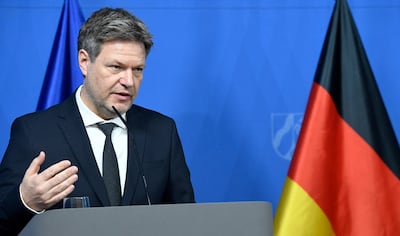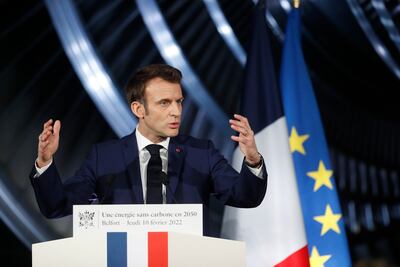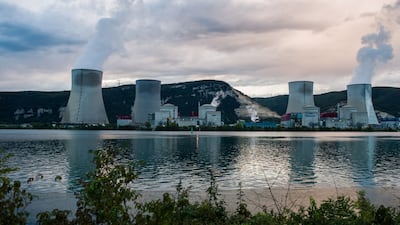Problems in France’s nuclear power sector are expected to compound the energy squeeze in neighbouring Germany this winter.
Gloomy forecasts for electricity production in France make it ever more likely that Germany will have to delay the long-planned switch-off of its own nuclear stations.
French forecasts shared with officials in Berlin suggest power generation could be as much as 20 per cent lower than hoped, putting Germany in what Vice Chancellor Robert Habeck called an “extreme scenario” owing to lower imports.
On top of that, forecasts by French electricity provider EDF often prove too optimistic, Mr Habeck said, meaning Germany could have to use up even more precious gas to generate power.
If things do not improve, two condemned nuclear plants, Isar 2 and Neckarwestheim, would be kept in reserve beyond the December 31 deadline to plug a potential shortage in Germany.
“The numbers from France have kept going down in the last few weeks,” Mr Habeck said.
“At this stage I have to say that the data from France suggests that we will have to call up and use the reserve.”

The squeeze is an annoyance for both governments. Mr Habeck’s Green party faces having to postpone its long-cherished dream of phasing out nuclear power just when it was on the cusp of completion.
In France, President Emmanuel Macron has made clear his dissatisfaction with EDF over the maintenance problems that have put a large chunk of the nuclear power sector out of action.
Numerous plants in France’s 56-strong network were taken offline after pipe corrosion was discovered during repairs, adding to Europe’s energy woes after Russia reduced its natural gas exports.
French electricity sales to Germany plummeted by 59 per cent in the first half of this year, making Germany a net exporter to France for the first time since reunification in 1990.
Officials say an initial estimate that French nuclear capacity would reach 50 gigawatts during the winter is no longer on the cards.
Instead, the latest modelling suggests no more than 45GW of production for two weeks in January and then only 40GW by the end of February.
"If these developments do not go into reverse, we will leave Isar 2 and Neckarwestheim on the grid in the first quarter of 2023," Mr Habeck said.
As part of the preparations in Germany, MPs will have to approve an extension of the December 31 deadline that was set more than a decade ago in the aftermath of the Fukushima disaster.
The emergency plans call for Isar 2 and Neckarwestheim to keep running until April, at between 50 per cent and 95 per cent of capacity. A third plant, Emsland, is still on track to close on schedule.

Nuclear operators EnBW and Eon agreed to the extension after sometimes fractious talks with the government, which agreed to compensate them for any losses after they spent years preparing for the switch-off.
Even so, the extension “is very challenging to implement … it means that we will have to rework all measures prepared for the planned year-end phase-out”, said EnBW chief operating officer Georg Stamatelopoulos.
Germany’s winter plans include an energy-saving campaign to lower gas consumption and emergency plans for gas rationing in which people could be asked to make do with the bare essentials.
However, Mr Habeck has rejected calls from the opposition for a deeper rethink on nuclear power, including keeping existing plants on the grid until 2024 and possibly investing in a new generation of small reactors.
“The emergency situation in France makes clear once again that nuclear power is not a technology of the future ― the future is renewable,” said Green party co-leader Ricarda Lang.
Mr Macron, by contrast, is an enthusiastic supporter of nuclear power and has called for France to build between six and 14 new reactors by 2050.
The two countries are at odds over a European plan to designate nuclear power as sustainable for the purposes of green investment, which narrowly passed the European Parliament in July.


